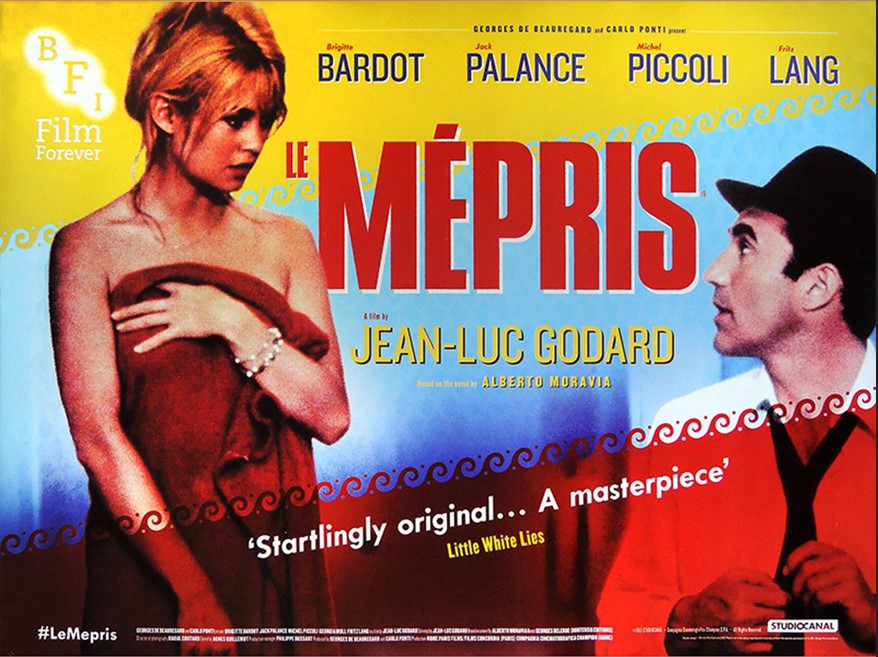Le Mépris (Contempt in english), is a French film produced in 1963 and directed by Jean-Luc Godard. For lovers of classic film, this is one to see. Based on Il disprezzo, a novel written by Alberto Moravia, the film portrays the deterioration of Camille and Paul’s relationship and it is through this transition from love to contempt which makes the film iconic. In his use of the narrow temporal frame of minutes and seconds, Godard centres on the important but fleeting moments that mark this transition.
This film depicts the cruel reality of so many relationships. What Le Mépris lacks in action, it makes up for in its romantic storytelling. Through the stunning beauty of the actors, the poetics of its screenplay and its breath-taking scenery, this film proves its credentials as an aesthetic masterpiece. One should not expect much from the plot but should focus on the enticing and tumultuous conversation between the actors, and how this speaks to one’s own experience.

Camille, the protagonist, is played by Brigitte Bardot, an iconic figure in French film known for her extravagant beauty. Camille and her husband Paul, played by Michel Piccoli, live in Rome where Paul works as a writer in the cinematographic industry. The fall of Camille and Paul’s love parallels Godard’s fears of the death of cinema. Godard later described this iconic film as the only ‘classic’ movie he has made, in the Cahier du Cinema in 1985.
What makes this film so special is the way it embraced technical experimentation. Its use of novel camera work and shifting modes of narration were ahead of its time: switching from fast paced and direct conversation to heartfelt monologues, then from a stream of consciousness touching on philosophical issues to a long shot of Capri island and the sea accompanied by the soundtrack composed by Georges Delerue. Each scene is simple in character, slow even, as Godard emphasises the poetic relation between the temporal and the visual. The French film, set in Italy, is imbued with the essence of Hollywood, and switches thematically between American, German, French and Italian influences.
This film is absorbed by the notion of beauty, the viewer is directed to watch, to admire, to engage in this aesthetic pleasure. This extends to the viewers relationship with Camille, she is portrayed sensually, even sexually, but not necessarily in a diminishing way. I believe the film glorifies her beauty and body; embodying the femme fatale.
If you are deciding whether to watch Le Mépris, it may be helpful to know that these classics; La Parisienne, Cinema Paradiso and It Started in Naples are of similar esteem to it. However, I recommend not having expectation for Le Mépris and just watching and seeing what one feels.
